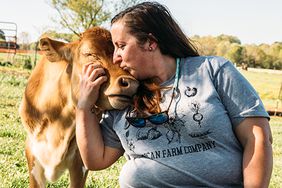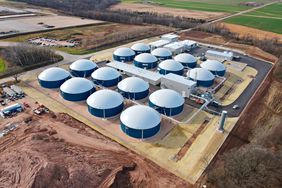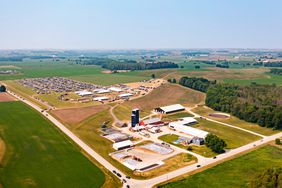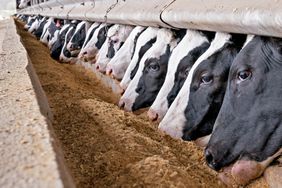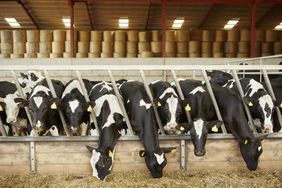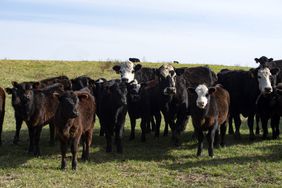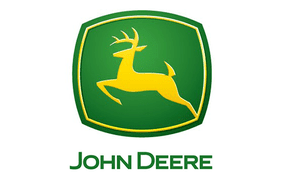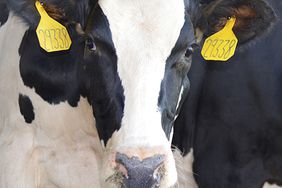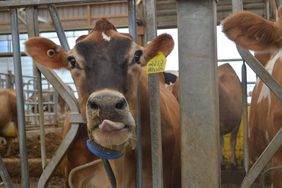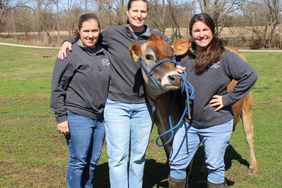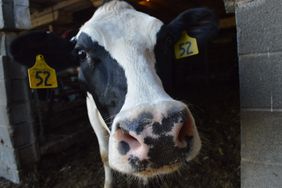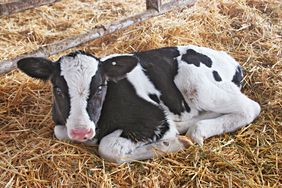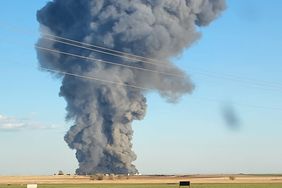:max_bytes(150000):strip_icc()/Guernsey_Girl_Creamery_007-2000-c72051867e004afcaa58f7f6984ab95d.jpg)
Ashley Bridges McMurry was born to farm and that's no hyperbole. She lives near Shelby, North Carolina, on Bridges Dairy Road, named for her farming ancestors.
At 8-years old, she began overseeing care and feeding of the bottle calves on the 100-plus-head dairy owned by her grandparents, Charles and Edith Bridges. She didn't take the bus home from school; her grand-father picked her up so she could do those afternoon chores.
"I saw my grandfather every single day," McMurry says. "I was doing chores with him, had 10 to 15 bottle calves and another set of weaned calves up to 6 to 7 months of age to care for. I was working, but I had a sense of freedom and responsibility at a young age."
Today, McMurry operates Guernsey Girl Creamery, lauded for its milk and award-winning cheese. The creamery sells 90% of the production from a dozen-plus Guernsey cows on that same farm at a tiny store open on Saturdays, when a couple dozen regulars may be lined up by 9 a.m.
Overcoming Roadblocks
Though McMurry's return to the family farm may seem preordained, it didn't happen easily. Tragedy and economic struggle have thrown up roadblocks, and the effects are still felt today. McMurry recalls the day 24 years ago when, in eighth grade, she was taken out of school to the hospital.
"It was about a week before the state fair and Grandpa was trying to catch show heifers when he was attacked by a bull," she recalls. "My father [Kevin Bridges] was also working at the farm that day and came up the hill to dis-cover Grandpa lying in the pasture."
Her father, who worked full-time as a paramedic, began administering CPR. Kevin Bridges broke away for a moment to use the phone in the milk barn to call for the ambulance. When he returned to continue CPR on Charles Bridges, he was attacked by the same bull.
On the way to the hospital she was told her grandfather had died and that her father was in critical condition with injuries that included 13 broken ribs and a punctured lung. A neighbor had rushed to the farm and shot the bull so emergency workers could reach the two men.
"Honestly it was a nightmare," McMurry says. "It was that traumatic. I just remember saying over and over I wanted to see my dad." Hospital staff were reticent but eventually allowed her to see her father while he was still being treated.
By then it was after 3 p.m., when she would normally be doing chores. She told her mother, Becki Anthony (her parents were divorced): "I gotta go feed the calves.
"Mom took me home, and I climbed into my grandfather's truck and fed the calves," McMurry says. "It was like therapy, and nobody else knew how to do it. In a sense, I feel like when tragic things happen people need to find a purpose." Her father remained in the hospital while McMurry continued to take care of the calves and juveniles while helping family and friends with the dairy itself.
Building on a Legacy
After months in the hospital, her father took over the dairy. McMurry went on to earn a two-year degree in animal science from the North Carolina State University Agricultural Institute. She worked as a vet tech for several years while also helping at the farm. In 2011, her father was forced to sell the dairy herd. Another local dairy operation with which they partnered was leaving the business, and Bridges couldn't afford to buy them out and didn't believe they could continue financially on their own. They sold nearly the entire Guernsey herd.
Aware of his daughter's desire to farm, Bridges kept several head, cows that she had raised and shown. He also gave her a copy of "Home Cheese Making" by Ricki Carroll. Thus began a period of experimentation, relying on numerous books while consulting experts, to try to make good cheese. During this time, she wed Dustin McMurry, another local who had his own dreams of farming.
"I was trying to take recipes using 1 to 3 gallons of milk and adapt them to using 30 to 50 gallons," she says. "Let me tell you, you can't just multiply the numbers."
Her husband was the taste-testing guinea pig. "I didn't kill him," she says.
Eventually McMurry made a soft cheddar, soft because it wasn't aged as long as a typical cheddar, with sublime flavor. Ten years later, that same cheddar is their best-selling cheese. "I'll go to my grave with that recipe," she says, recounting the number of times she's been asked for it. She still has those cheese-making books, filled with her own notations. Now she crafts her own recipes.
The McMurrys have three children, Charlie, 10; Silas, 7; and Molly June, 1. They work 103 acres. While she manages all things dairy, he grows produce on 3 acres, keeps honeybees, and raises a limited number of beef cows, pigs, rabbits, and chickens; the meat is also sold in the store.
About 75% of their dairy production is sold as milk. The milk — whole, chocolate, and, in the spring, strawberry — brings people in the door.
Guernsey Girl Creamery has benefited from the surge in interest in value-added locally produced goods over the past decade.
That interest was enhanced by the pandemic. In addition, Guernseys produce milk containing A2 proteins, known to be more digestible to people sensitive to lactose. Most dairy breeds produce milk with A1 proteins.
The McMurrys sponsor major events at the farm: Dairy Day in June, Fall Fun Day in September, and Christmas at the Farm in December. All feature games, local vendors, and now their Guernsey Girl food trailer, where they make and sell a major local favorite, fried cheese curds.
"I'm always blown away with the number of people who will come here," McMurry says. "We'll average 700 people, and there will be 150 to 200 cars parked along the roadway."
What does the future hold? "We both talk about a bigger farm store," she says, "maybe with some type of restaurant or bakery. We definitely think about making ice cream as well." With that in mind she is already eyeing their eldest, Charlie. "I need to start teaching him my recipes."

